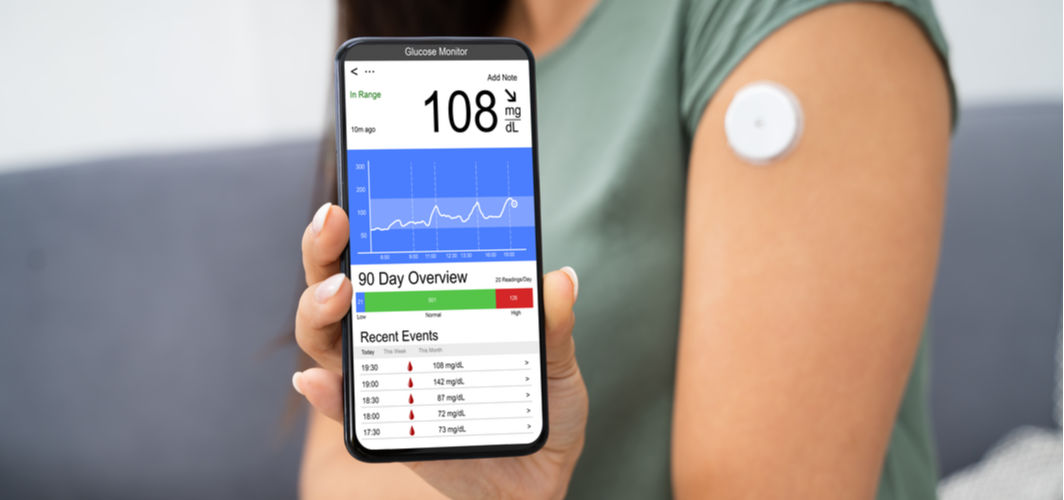Diabetes Management
Log. Track. Learn- Here’s How You Can Simplify Your Diabetes Management
3 min read
By Apollo 24|7, Published on - 05 October 2023
Share this article
0
0 like
_0.jpg?tr=q-80)
Managing diabetes may appear complex and challenging, but with the right tools and strategies, it can be a manageable and stress-free journey. While keeping a close eye on your sugar levels, watching what you eat and understanding your condition may appear tough, it is the key to leading a healthier life. We at Apollo 24|7 understand this, and with our diabetes self-management tool, we are here to simplify your diabetes management. Here’s how:
Keeping a Log of Your Glucose Levels Made Easy
Logging glucose values is vital for diabetes management as it allows individuals to track their blood sugar levels over time, identify trends, and make informed decisions about their treatment and lifestyle. With regular monitoring on our app, you can avoid extreme highs and lows, reduce the risk of complications, share your reports and ensure better overall health. It empowers you to adjust medications, diet, and exercise effectively, ultimately leading to improved blood sugar control and a higher quality of life.
Track Your Physical Activity
Tracking physical activity provides insights into exercise routines, helping individuals set and achieve fitness goals. On our app, you can monitor daily steps, distance, and calories burned to achieve better blood sugar control. Lead an active lifestyle, improve insulin sensitivity, and ensure your overall well-being.
Sync Your Glucometer
You can easily sync your glucometer with our digital platform to streamline diabetes management by automating data entry. Ensure a real-time, accurate tracking of blood sugar levels and reduce the risk of errors. This seamless process shall allow for better communication with healthcare providers and facilitate timely adjustments to treatment plans, leading to improved diabetes control.
Know Your Food
Understanding how meals affect your blood sugar levels is crucial for helping you identify which foods cause spikes or dips in your sugar levels, helping you make informed dietary choices. You can also use the ‘Know Your Food’ section in our tool to find healthier alternatives to your favourite dishes and create balanced meal plans tailored to your dietary preferences and restrictions.
Stay Informed
Understanding about topics that might affect your daily life is important to stay on top of your condition. We aim to do just that via Health Bites, wherein we try to cover various aspects of diabetes via concise blogs. Whether you're looking for dietary tips, practical management strategies, or the latest developments in the field, Health Bites has got you covered. To make your learning experience quick, engaging, and informative, we keep each piece under 100 words.
Conclusion
Managing diabetes can indeed be complex, but it doesn't have to be overwhelming. With the right tools and strategies, diabetes management can become a more straightforward and stress-free journey.
Diabetes Management
Leave Comment
Recommended for you

Diabetes Management
10 Tips To Choose The Right Diabetes Test Provider
The frequency of diabetes testing depends on factors such as overall health, age, and type of diabetes. Type 1 diabetics should get tested annually, while type 2 diabetics can be tested annually or as advised by their doctors. The HbA1c tests can be conducted every 2-3 months to monitor long-term blood sugar levels. Home blood sugar monitoring may also be recommended based on individual circumstances. Regular testing can help monitor and manage diabetes effectively.

Diabetes Management
Continuous Glucose Monitoring: How Does it Help?
CGM is a device that helps individuals with diabetes track their glucose levels continuously. A tiny sensor is inserted under the skin to measure glucose in the interstitial fluid. It helps individuals monitor glucose levels throughout the day and night, thereby allowing them to improve their HbA1c levels, reduce hypoglycemia events, and assess the impact of diet and exercise on glucose levels.

Diabetes Management
Consuming Over 6 Teaspoons Of Sugar Daily Increases Your Risk For These Diseases
Consuming over 6 teaspoons of sugar daily increases the risk for various diseases. Excessive sugar intake is linked to an increased risk of obesity, type 2 diabetes, and tooth decay. High sugar consumption can also lead to weight gain, insulin resistance, inflammation, and other metabolic disturbances, contributing to the development of these chronic health conditions. It is important to moderate sugar intake for overall health and well-being.
Subscribe
Sign up for our free Health Library Daily Newsletter
Get doctor-approved health tips, news, and more.
Visual Stories

8 Fruits That are Incredibly Healthy for Diabetes
Tap to continue exploring
Recommended for you

Diabetes Management
10 Tips To Choose The Right Diabetes Test Provider
The frequency of diabetes testing depends on factors such as overall health, age, and type of diabetes. Type 1 diabetics should get tested annually, while type 2 diabetics can be tested annually or as advised by their doctors. The HbA1c tests can be conducted every 2-3 months to monitor long-term blood sugar levels. Home blood sugar monitoring may also be recommended based on individual circumstances. Regular testing can help monitor and manage diabetes effectively.

Diabetes Management
Continuous Glucose Monitoring: How Does it Help?
CGM is a device that helps individuals with diabetes track their glucose levels continuously. A tiny sensor is inserted under the skin to measure glucose in the interstitial fluid. It helps individuals monitor glucose levels throughout the day and night, thereby allowing them to improve their HbA1c levels, reduce hypoglycemia events, and assess the impact of diet and exercise on glucose levels.

Diabetes Management
Consuming Over 6 Teaspoons Of Sugar Daily Increases Your Risk For These Diseases
Consuming over 6 teaspoons of sugar daily increases the risk for various diseases. Excessive sugar intake is linked to an increased risk of obesity, type 2 diabetes, and tooth decay. High sugar consumption can also lead to weight gain, insulin resistance, inflammation, and other metabolic disturbances, contributing to the development of these chronic health conditions. It is important to moderate sugar intake for overall health and well-being.